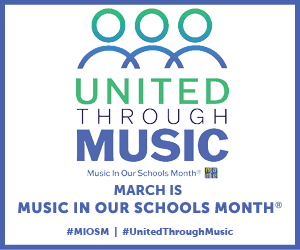
EVENTS
Music Education and Students with Disabilities and/or Living in Poverty: A NAfME Virtual Symposium
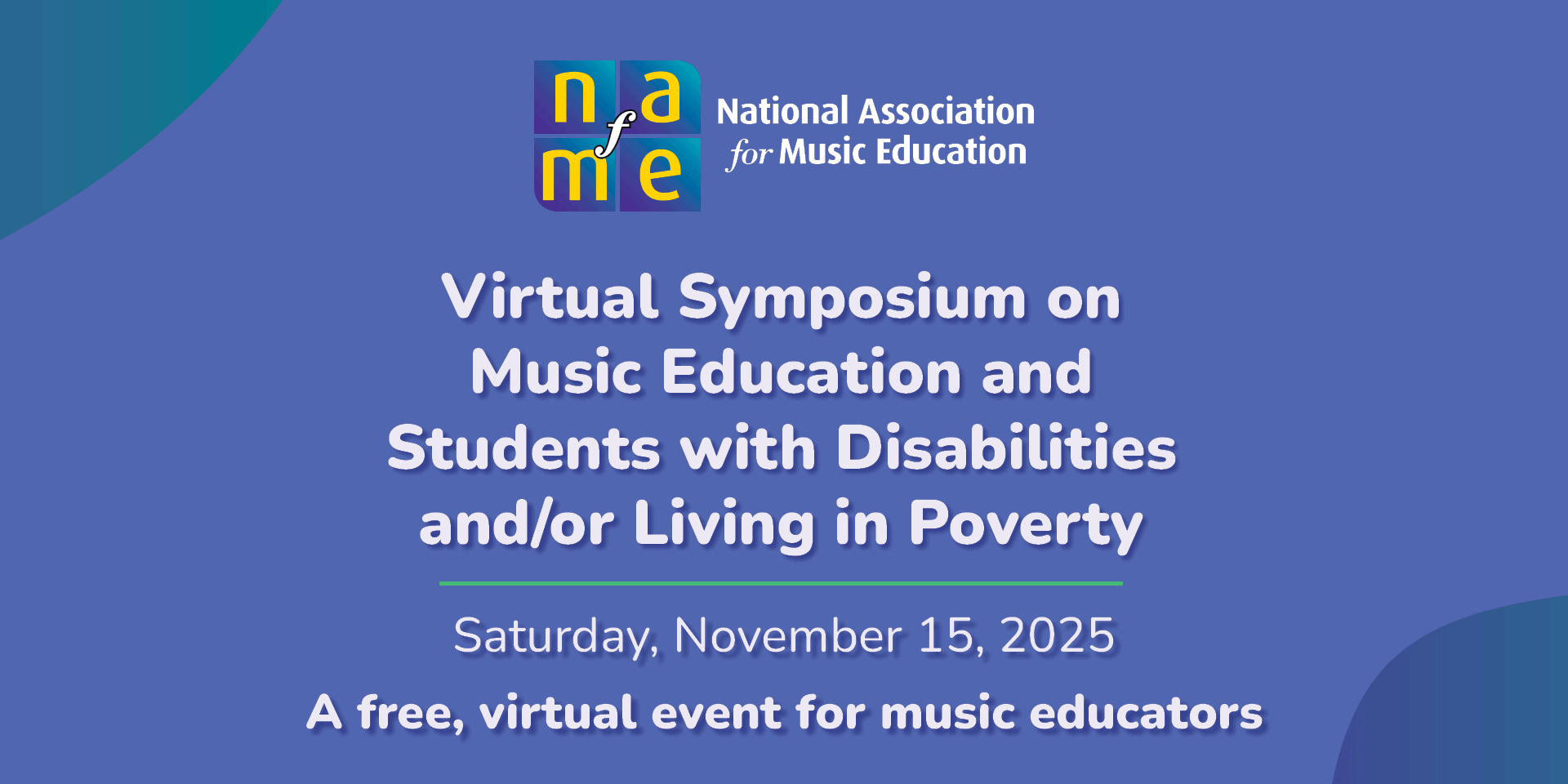
/ Professional Learning & Events / Event Calendar / Music Education and Students with Disabilities and/or Living in Poverty: A NAfME Virtual Symposium
About the Event
Where is the field of music in special education and the care of students who live in poverty heading in the next 10 years? How can we prepare to be the best teachers possible for our students? What enduring questions remain, and how will we fulfill the promises of an education based in equity and care for all students? As we finish our time together during this virtual symposium, we will also ask each Zoom group to share their questions and responses to provide closure for our day. Register today.
Organized by Alice Hammel and Joseph Abramo. Additional presenters will include Tina Beveridge, Adam Chitta, Eddy Ercilla, Erika Knapp, Melissa Lloyd, Erin Price Hamilton, Cody Puckett, Nerissa Rebagay, and Ramon Rivera.
There is no fee to attend this event. However, space is limited, and all attendees must register in advance.
Schedule and Speakers:
(all times are Eastern time)
11:00AM–11:05AM
Welcome! Why are we here? (Alice Hammel and Joe Abramo)
11:05AM–11:35AM
Intersections of Neurodiversity, Classism, and Poverty (Cody Puckett and Nerissa Rebagay)
This session will explore the intersections of neurodiversity, classism, and poverty. Learn about neurodiversity and its related umbrella terms that you may encounter in your classroom. Understand the neurodiversity paradigm and social model of classism and poverty. Discover how the Every Student Succeeds Act (ESSA) enables music educators to create inclusive, accessible, and success-oriented learning environments for all learners, while also examining the intersections of disabilities and poverty.
11:35AM–12:05PM
Adaptive Modern Band, Mariachi, and Inclusive Music-Making (Ramon Rivera)
This session explores adaptive strategies in Modern Band, Mariachi, and informal music-making for students with physical or medical challenges. Learn how to create inclusive pathways, modify instruments, and embrace flexible teaching approaches to ensure that every student—regardless of ability—has access to meaningful, empowering music education.
12:05PM–12:15PM
Break
12:15PM–12:45PM
Honoring Diverse Communication Styles in Underserved Settings (Erika Knapp)
Explore developmentally appropriate, chronologically sensitive communication strategies for students who communicate differently while facing disability and poverty barriers. Learn practical multimodal techniques, low-cost adaptive tools, and inclusive approaches that honor diverse communication styles while addressing resource constraints in underserved educational settings.
12:45PM–1:15PM
Trauma-Informed Music Pedagogies: Considerations for Trauma’s Intersectionality with Poverty and Classism (Melissa Lloyd and Erin Price Hamilton)
The purpose of this session is to explore the intersectionality of classism, poverty, and trauma, and how these dimensions can impact an individual’s emotions and behaviors. We’ll investigate the differences between emotions and behavior, and how trauma may elicit unexpected behaviors as expressions of intense emotions. Additionally, we’ll examine how trauma may manifest through the seven sensory systems, offering insights into student responses and strategies for creating safe and supportive learning environments for students.
1:15PM–1:50PM
Breakout Session
Attendees will be randomly placed in Zoom rooms to make a Google Doc of Ahas, Wonderments, and Takeaways from the morning sessions.
1:50PM–2:00PM
Break
2:00PM–2:30PM
Classism and Poverty and Their Intersections with Disabilities (Tina Beveridge)
This session will cover the intersection of poverty and disabilities. In sociological literature, this intersection is called “social determinants of health.” This session will touch on practical classroom implications and broader policy and advocacy points to use within an individual school building. Other topics will include putting together your team for student success (guidance counselor/colleagues, administrators, and parents) and a general discussion about philosophical aims of teaching music within these contexts.
2:30PM–3:00PM
Inclusive Music: Engaging All Kids Through Adaptive Sensory Experiences (Adam Chitta and Eddy Ercilla)
Explore inclusive music techniques for students with sensory disabilities through accessible, budget-friendly approaches. This session covers adaptive strategies using common classroom materials, technology integration for enhanced participation, and practical solutions that work in any learning environment. Presenters will provide insight from the perspective of having and teaching with a sensory disability.
3:00PM–3:10PM
Break
3:10PM–3:40PM
Classism and Poverty (Joe Abramo)
This session explores various definitions and conceptions of class, including socioeconomics, different forms of capital, and how class intersects with but also differs from race. In addition, the session covers how disability and special education influence and are influenced by class contexts.
3:40PM–4:10PM
Breakout Session
Return to the same Zoom rooms to complete afternoon Ahas, Wonderments, and Takeaways. Choose a group leader to ask your questions and/or discuss your reflections.
4:10PM–4:30PM
Where Do We Go from Here? (Alice Hammel and Joe Abramo)
Where is the field of music in special education and the care of students who live in poverty heading in the next 10 years? How can we prepare ourselves to be the best teachers possible for our students? What enduring questions remain, and how will we fulfill the promises of an education based in equity and care for all students? As we finish our time together, we will also ask each Zoom group to share their questions and responses to provide closure for our day.
About the Speakers:
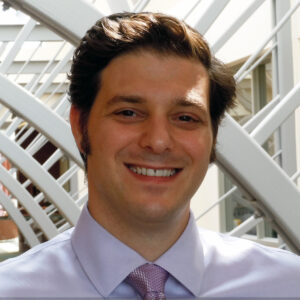 Joseph Abramo is Associate Professor of Music Education in the Neag School of Education at the University of Connecticut. His areas of research include equity in music education, music teacher preparation, and popular music. Dr. Abramo has published more than 35 peer-reviewed articles, book chapters, and books. He is the co-author of the book Music Teacher Evaluation: A Guide for Teachers in the U.S. published by Oxford University Press. He has also presented at various international, national, and regional conferences. Dr. Abramo currently serves on the National Association for Music Education’s (NAfME) Equity Committee and is also co-chair of the Connecticut Music Educators Association’s (CMEA) Equity and Advocacy Committee. He is also a Past Chair of the Philosophy Special Research Interest Group of NAfME and served as an early reviewer for the 2014 National Standards in Music. He served on the State Education Department’s Arts Leadership Team and as a co-editor of its on-line, peer-reviewed journal Gender, Education, Music, Society. Dr. Abramo records electronic music under the pseudonym Lords of Sounds and Lesser Things.
Joseph Abramo is Associate Professor of Music Education in the Neag School of Education at the University of Connecticut. His areas of research include equity in music education, music teacher preparation, and popular music. Dr. Abramo has published more than 35 peer-reviewed articles, book chapters, and books. He is the co-author of the book Music Teacher Evaluation: A Guide for Teachers in the U.S. published by Oxford University Press. He has also presented at various international, national, and regional conferences. Dr. Abramo currently serves on the National Association for Music Education’s (NAfME) Equity Committee and is also co-chair of the Connecticut Music Educators Association’s (CMEA) Equity and Advocacy Committee. He is also a Past Chair of the Philosophy Special Research Interest Group of NAfME and served as an early reviewer for the 2014 National Standards in Music. He served on the State Education Department’s Arts Leadership Team and as a co-editor of its on-line, peer-reviewed journal Gender, Education, Music, Society. Dr. Abramo records electronic music under the pseudonym Lords of Sounds and Lesser Things.
 Tina Beveridge is an Assistant Professor of Music Education at George Mason University. Her diverse teaching experience includes choir, band, elementary general, jazz, pop, and world music pedagogy, mostly in high-poverty schools. At Mason, Dr. Beveridge teaches undergraduate methods classes in choral and general music, music pedagogy, and graduate seminars. She is also the faculty advisor for Mason’s collegiate NAfME chapter and Mason Some Noise, a student-run pop a cappella ensemble.
Tina Beveridge is an Assistant Professor of Music Education at George Mason University. Her diverse teaching experience includes choir, band, elementary general, jazz, pop, and world music pedagogy, mostly in high-poverty schools. At Mason, Dr. Beveridge teaches undergraduate methods classes in choral and general music, music pedagogy, and graduate seminars. She is also the faculty advisor for Mason’s collegiate NAfME chapter and Mason Some Noise, a student-run pop a cappella ensemble.
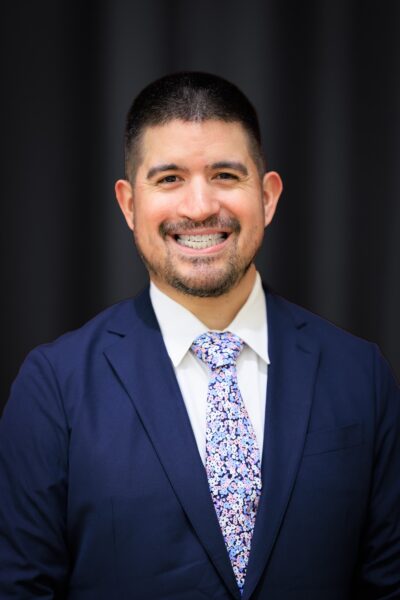 Adam Chitta (key-ta) is currently a PhD student in Music Education and a Teaching Assistant at the University of Missouri in Columbia. Prior to this role, he spent 14 years as a middle school band director in the North East Independent School District in San Antonio, Texas. He is the founder of The Chitta Sound, LLC, which enhances access and outreach for deaf and hard-of-hearing (DHH) students and raises awareness of teaching DHH students in music education classrooms. He has been wearing behind-the-ear (BTE) hearing aids since he was seven years old. He has also presented at conferences such as the Cambridge University Press Accessibility Champions Virtual Talk and The Midwest Clinic on the topic of assisting the deaf and hard-of-hearing through their music education journey.
Adam Chitta (key-ta) is currently a PhD student in Music Education and a Teaching Assistant at the University of Missouri in Columbia. Prior to this role, he spent 14 years as a middle school band director in the North East Independent School District in San Antonio, Texas. He is the founder of The Chitta Sound, LLC, which enhances access and outreach for deaf and hard-of-hearing (DHH) students and raises awareness of teaching DHH students in music education classrooms. He has been wearing behind-the-ear (BTE) hearing aids since he was seven years old. He has also presented at conferences such as the Cambridge University Press Accessibility Champions Virtual Talk and The Midwest Clinic on the topic of assisting the deaf and hard-of-hearing through their music education journey.
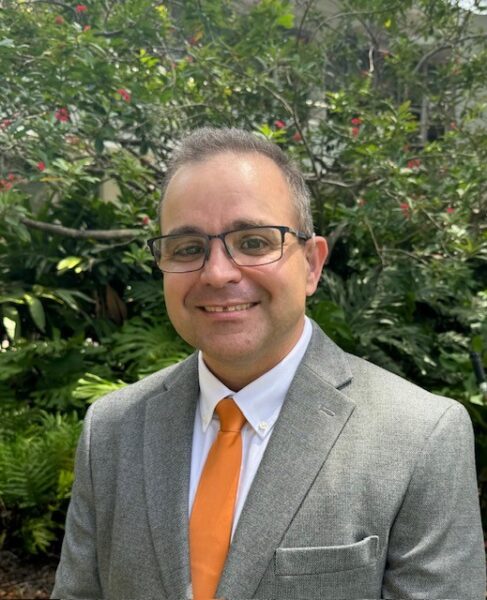 Edward J. Ercilla is a PhD student in music education at the Frost School of Music, University of Miami in Florida, with 20 years of experience as an instrumental music educator in Miami-Dade County K–12 schools. As a deaf music educator, he presents at local, state, and national conferences on supporting students with hearing loss and other disabilities. He co-directs the Frost New Horizons Band, providing music experiences for Miami’s older adults, and serves as Program Manager for the Frost Summer Experience music camp, which showcases the school’s innovative programs. His research focuses on students with disabilities, disability inclusion advocacy, hearing loss in music education, and musician health and wellness.
Edward J. Ercilla is a PhD student in music education at the Frost School of Music, University of Miami in Florida, with 20 years of experience as an instrumental music educator in Miami-Dade County K–12 schools. As a deaf music educator, he presents at local, state, and national conferences on supporting students with hearing loss and other disabilities. He co-directs the Frost New Horizons Band, providing music experiences for Miami’s older adults, and serves as Program Manager for the Frost Summer Experience music camp, which showcases the school’s innovative programs. His research focuses on students with disabilities, disability inclusion advocacy, hearing loss in music education, and musician health and wellness.
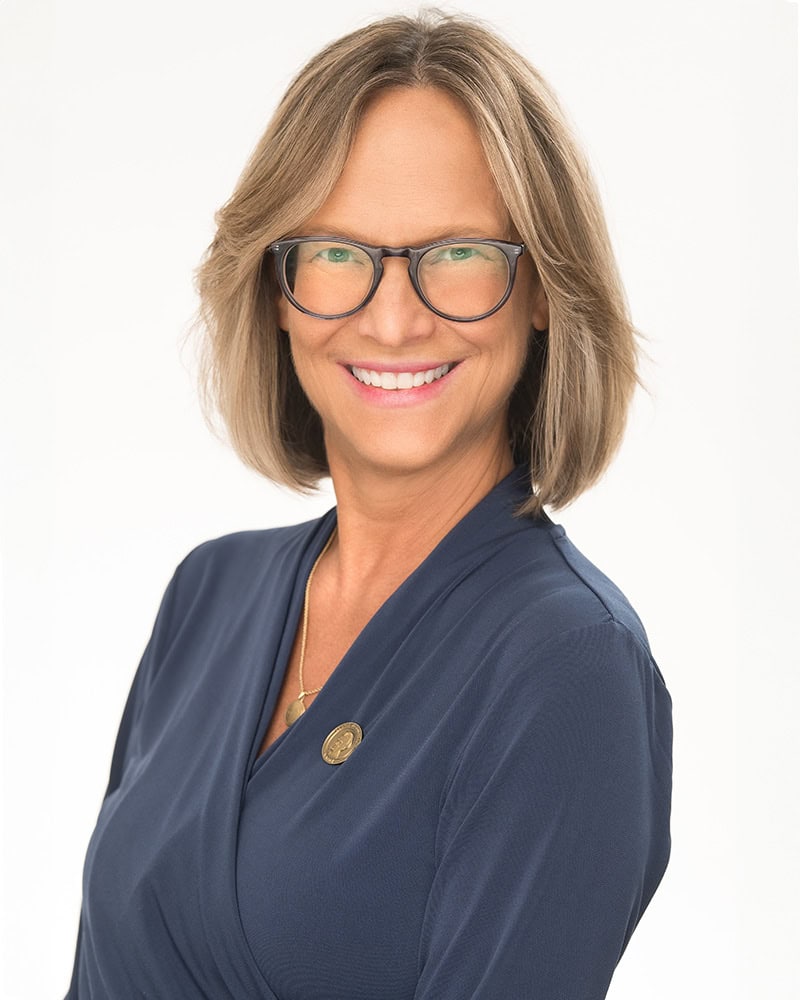 Grammy Award Nominated Educator Alice Hammel was the 2023 NAfME Lowell Mason Fellow, Virginia Music Educators Association (VMEA) Outstanding Educator (2018), and is the current Past-President of VMEA. She is a widely known music educator, author, and clinician whose experience in music is extraordinarily diverse. She is a Disabilities Specialist and has many years of experience teaching instrumental and choral music in public and private schools. Dr. Hammel has put these varied experiences to great use while compiling a large body of scholarly work. She is a co-author for many texts: Q&A for Band Directors, Teaching Music to Students with Differences and Disabilities (A Label-free Approach and A Practical Resource), Teaching Music to Students with Autism, Winding It Back, and Universal Design for Learning in Music Education. Dr. Hammel is Past-President of the Council for Exceptional Children Division for Visual and Performing Arts Education and was awarded their Past President Award for Excellence. She has served NAfME as a member of the National Executive Board, the Equity Committee, and the Music Teacher Profession Initiative. She is a proponent of Music Will and the Modern Band movement.
Grammy Award Nominated Educator Alice Hammel was the 2023 NAfME Lowell Mason Fellow, Virginia Music Educators Association (VMEA) Outstanding Educator (2018), and is the current Past-President of VMEA. She is a widely known music educator, author, and clinician whose experience in music is extraordinarily diverse. She is a Disabilities Specialist and has many years of experience teaching instrumental and choral music in public and private schools. Dr. Hammel has put these varied experiences to great use while compiling a large body of scholarly work. She is a co-author for many texts: Q&A for Band Directors, Teaching Music to Students with Differences and Disabilities (A Label-free Approach and A Practical Resource), Teaching Music to Students with Autism, Winding It Back, and Universal Design for Learning in Music Education. Dr. Hammel is Past-President of the Council for Exceptional Children Division for Visual and Performing Arts Education and was awarded their Past President Award for Excellence. She has served NAfME as a member of the National Executive Board, the Equity Committee, and the Music Teacher Profession Initiative. She is a proponent of Music Will and the Modern Band movement.
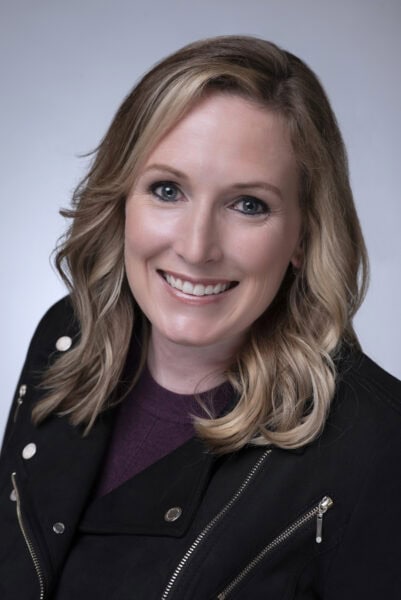 Erika J. Knapp is an Assistant Professor of Music Education at Texas Woman’s University specializing in early childhood, elementary education, and music for diverse learners. She earned a PhD in music education from Michigan State University. An active presenter and guest clinician/conductor, Dr. Knapp has shared her scholarship and passion for teaching at national and international venues, where she focuses on inclusive practice and empowering educators to create active, joyful musical experiences for their students. Her scholarly and research interests include music for students with ability differences, teacher professional development, equity in music education, and student belonging. Knapp has published research in many national research journals and has several forthcoming book chapters.
Erika J. Knapp is an Assistant Professor of Music Education at Texas Woman’s University specializing in early childhood, elementary education, and music for diverse learners. She earned a PhD in music education from Michigan State University. An active presenter and guest clinician/conductor, Dr. Knapp has shared her scholarship and passion for teaching at national and international venues, where she focuses on inclusive practice and empowering educators to create active, joyful musical experiences for their students. Her scholarly and research interests include music for students with ability differences, teacher professional development, equity in music education, and student belonging. Knapp has published research in many national research journals and has several forthcoming book chapters.
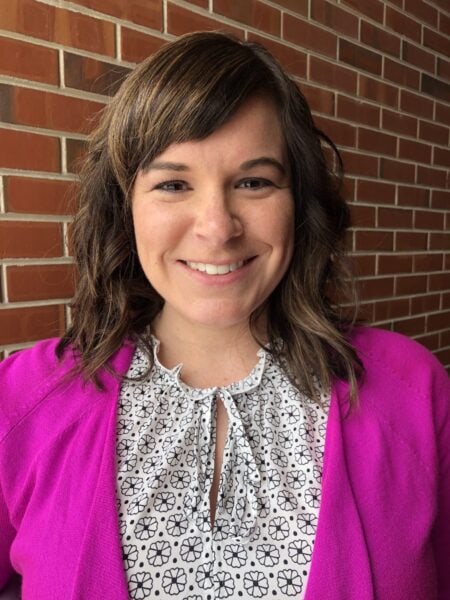 Melissa A. Lloyd is an Assistant Professor of Music Education at the University of Louisville in Louisville, Kentucky, where she teaches undergraduate and graduate music education courses and supervises student teachers. Prior to collegiate teaching, Dr. Lloyd taught elementary general music for 13 years in public and private schools in the states of Maryland and Florida. Dr. Lloyd serves as facilitator for the Music Teacher Health and Wellness Area of Strategic Planning & Action (ASPA) of NAfME’s Society of Music Teacher Education. She has presented at numerous state, national, and international conferences and has been published in the Journal of General Music Education. Dr. Lloyd’s research interests included trauma-informed practices in elementary and collegiate music settings, particularly for students with emotional and behavioral challenges and those who have experienced trauma.
Melissa A. Lloyd is an Assistant Professor of Music Education at the University of Louisville in Louisville, Kentucky, where she teaches undergraduate and graduate music education courses and supervises student teachers. Prior to collegiate teaching, Dr. Lloyd taught elementary general music for 13 years in public and private schools in the states of Maryland and Florida. Dr. Lloyd serves as facilitator for the Music Teacher Health and Wellness Area of Strategic Planning & Action (ASPA) of NAfME’s Society of Music Teacher Education. She has presented at numerous state, national, and international conferences and has been published in the Journal of General Music Education. Dr. Lloyd’s research interests included trauma-informed practices in elementary and collegiate music settings, particularly for students with emotional and behavioral challenges and those who have experienced trauma.
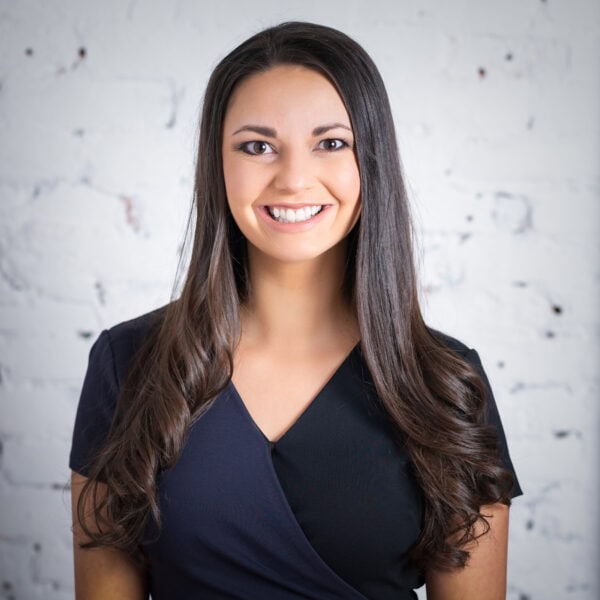 Erin Price-Hamilton is an Adjunct Professor of Music Education at Elizabethtown College in Pennsylvania, an undergraduate/graduate course facilitator for Boston University in Massachusetts, and a special education music teacher and researcher in the Greater Harrisburg, Pennsylvania, area. Before teaching general music and elementary special education music for a Pennsylvania public cyber charter school, Dr. Price-Hamilton worked in multiple Pennsylvania Approved Private Schools for students with emotional disturbance, where she served students aged 5–21 with advanced inpatient and outpatient behavioral support needs. Dr. Price-Hamilton holds a BM in Music Education from West Chester University of Pennsylvania and MM and DMA degrees from Boston University. A champion for equity and increased access points in music education, she frequently publishes and presents research on trauma-informed music pedagogy and the intersections of trauma and emotional/behavioral disorders.
Erin Price-Hamilton is an Adjunct Professor of Music Education at Elizabethtown College in Pennsylvania, an undergraduate/graduate course facilitator for Boston University in Massachusetts, and a special education music teacher and researcher in the Greater Harrisburg, Pennsylvania, area. Before teaching general music and elementary special education music for a Pennsylvania public cyber charter school, Dr. Price-Hamilton worked in multiple Pennsylvania Approved Private Schools for students with emotional disturbance, where she served students aged 5–21 with advanced inpatient and outpatient behavioral support needs. Dr. Price-Hamilton holds a BM in Music Education from West Chester University of Pennsylvania and MM and DMA degrees from Boston University. A champion for equity and increased access points in music education, she frequently publishes and presents research on trauma-informed music pedagogy and the intersections of trauma and emotional/behavioral disorders.
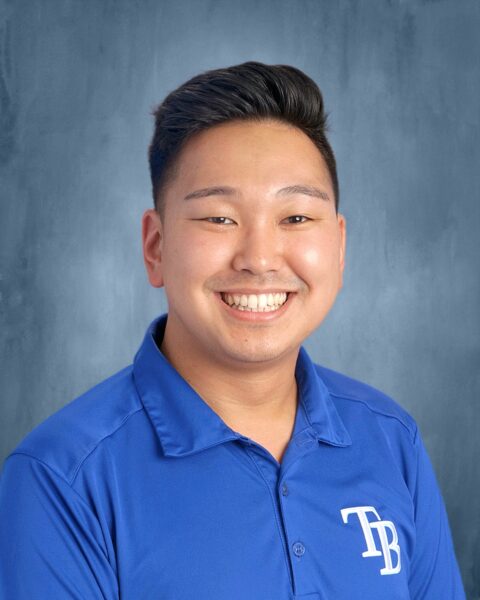 Cody Puckett is a dynamic professional educator, disabilities advocate, and change leader committed to driving innovation in adaptive music education. Currently, he is an adaptive music educator in Central Florida. He has experience teaching students who are deaf or hard of hearing as well as those with varying exceptionalities in the music classroom. He is pursuing his PhD in Music Education at the University of South Florida, with a focus on Speech-Language and Hearing Sciences. Cody is dedicated to bridging the gap between music and accessibility.
Cody Puckett is a dynamic professional educator, disabilities advocate, and change leader committed to driving innovation in adaptive music education. Currently, he is an adaptive music educator in Central Florida. He has experience teaching students who are deaf or hard of hearing as well as those with varying exceptionalities in the music classroom. He is pursuing his PhD in Music Education at the University of South Florida, with a focus on Speech-Language and Hearing Sciences. Cody is dedicated to bridging the gap between music and accessibility.
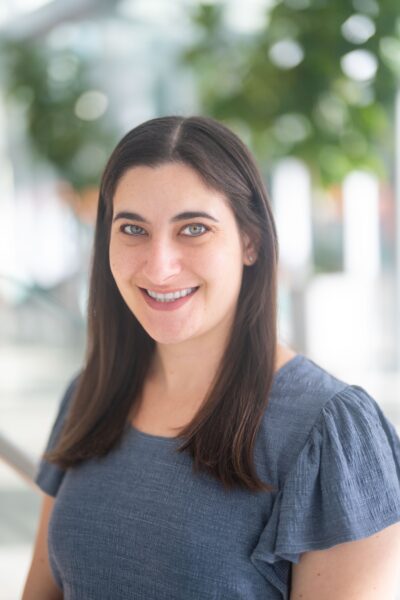 Nerissa Rebagay is a PhD student in Music Education at the Frost School of Music, University of Miami in Florida. Nerissa’s doctoral studies focus on elementary music education and teaching diverse students, and she is pursuing a cognate in special education. Nerissa’s research interests include neurodiversity, creativity, and music teacher training. She is co-author (with Dr. Alice Hammel and Dr. Tim Lautzenheiser) of a forthcoming book to assist band directors in including students with disabilities and differences in their ensembles, and she has given several practitioner and research-based presentations on disability in music at the local, state, national, and international levels. A lifelong learner, Nerissa is a Kodály certified teacher and is currently working toward Orff-Schulwerk certification. The Florida Music Educators Association recognized her as a 2020 Emerging Leader, and she was the 2021 Miami-Dade County Public Schools Rookie Teacher of the Year and was in the 2023 cohort of Yamaha’s 40 Music Educators Under 40. Nerissa holds active teacher certification in Florida and is a board-certified music therapist. She earned a Bachelor of Music in music education and music therapy from the University of Miami and a Master of Philosophy in Arts, Creativity, Education, and Culture from the University of Cambridge (UK).
Nerissa Rebagay is a PhD student in Music Education at the Frost School of Music, University of Miami in Florida. Nerissa’s doctoral studies focus on elementary music education and teaching diverse students, and she is pursuing a cognate in special education. Nerissa’s research interests include neurodiversity, creativity, and music teacher training. She is co-author (with Dr. Alice Hammel and Dr. Tim Lautzenheiser) of a forthcoming book to assist band directors in including students with disabilities and differences in their ensembles, and she has given several practitioner and research-based presentations on disability in music at the local, state, national, and international levels. A lifelong learner, Nerissa is a Kodály certified teacher and is currently working toward Orff-Schulwerk certification. The Florida Music Educators Association recognized her as a 2020 Emerging Leader, and she was the 2021 Miami-Dade County Public Schools Rookie Teacher of the Year and was in the 2023 cohort of Yamaha’s 40 Music Educators Under 40. Nerissa holds active teacher certification in Florida and is a board-certified music therapist. She earned a Bachelor of Music in music education and music therapy from the University of Miami and a Master of Philosophy in Arts, Creativity, Education, and Culture from the University of Cambridge (UK).
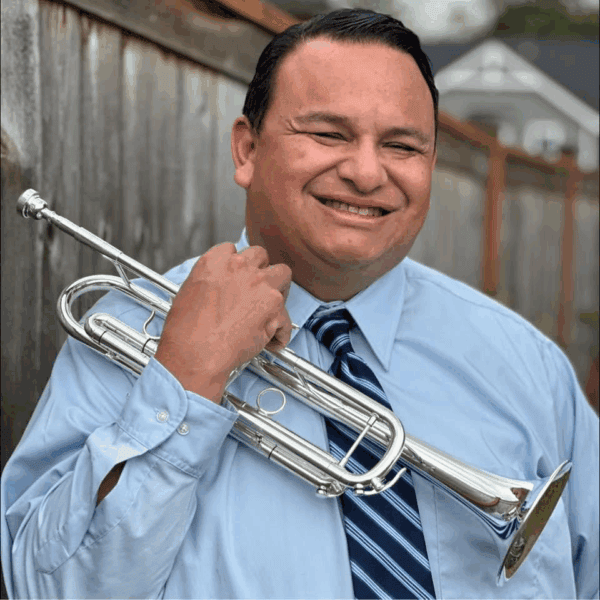 Ramon Rivera is a nationally recognized Mariachi Music Educator and Director of Mariachi in the Mount Vernon School District in Washington. A trailblazer in music education, he has received the Washington State Golden Apple Award, Seattle Seahawks Latino Leader of the Year, and CMA Foundation National Teacher of Excellence. His award-winning students have performed for stars like Garth Brooks, George Lopez, and Pepe Aguilar. A sought-after clinician, Rivera presents across the U.S. and is endorsed by Pbone, XO Brass, and Kohala Ukulele. He was named the 2023 Washington State Music Teacher of the Year and a 2025 TAPROOT Fellow.
Ramon Rivera is a nationally recognized Mariachi Music Educator and Director of Mariachi in the Mount Vernon School District in Washington. A trailblazer in music education, he has received the Washington State Golden Apple Award, Seattle Seahawks Latino Leader of the Year, and CMA Foundation National Teacher of Excellence. His award-winning students have performed for stars like Garth Brooks, George Lopez, and Pepe Aguilar. A sought-after clinician, Rivera presents across the U.S. and is endorsed by Pbone, XO Brass, and Kohala Ukulele. He was named the 2023 Washington State Music Teacher of the Year and a 2025 TAPROOT Fellow.
Start Date
November 15, 2025
End Date
November 15, 2025
Start and End Time
11:00 am - 4:30 pm (ET)
Categories
- Class
- Diversity, Equity, Inclusion, and Access (DEIA)
- Social Economic Status
- Special Education
Event Category
- Live Virtual
- Symposium


